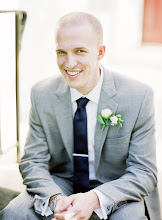Appeared in the November 2007 edition of DownBeat, an internationally circulated jazz magazine.
If you're not sure where Adonis Rose is from after listening to his drumming, you'll know it once he opens his mouth.
Rose speaks with a classic New Orleans accent, morphing words like "there" into "theyuh," and "orchestra" into "auchestra." In the same way he drops fat Big Easy bombs into his crisp, clean drumming, he speaks with a cadence that leaves little doubt about his New Orleans roots.
His accent might be why he sticks out in Fort Worth, Texas, where he moved after Hurricane Katrina and the subsequent floods ravished his hometown. Here's another explanation: in a city known for its honky tonks, Rose is building a jazz institution.
Last year, Rose launched the Fort Worth Jazz Orchestra (FWJO). Having recruited some of Texas' top young players, he hopes the presence of the big band will help build up the city's fledgling jazz scene, which at one time included thriving territory bands and such luminaries as Dewey Redman and Ornette Coleman. Jazz musicians have migrated away from the city or opted for higher-paying church gigs over the years. In 2001, the city's flagship club, Caravan of Dreams, closed, leaving jazz audiences deprived.
"There's a good corps of jazz fans in the Dallas/Fort Worth area, and I'm trying to reach out to those people," Rose said.
The drummer came to Fort Worth from his home in New Orleans a few days before Katrina hit. He didn't think he'd stay long.
"I thought Fort Worth was just a place where you have a bunch of cowboys and people riding horses down the street," Rose said. Upon arriving, he was surprised with the city's cultural offerings, and when he found his New Orleans house destroyed by the storm, he decided to make the move permanent.
The jazz scene was a far cry from what the 32-year-old drummer had grown used to in New Orleans, but he saw potential. "The vibe down there was happening," Rose said. "There were people playing music, just not any jazz. I saw an opening."
Rose also saw an opportunity to break out of his sideman role, which had included stints with trumpeters Terence Blanchard and Nicholas Payton, as well as a tour with the Jazz at Lincoln Center Orchestra in 1994 while on hiatus from Berklee College of Music in Boston. "The nature of the business is to look at other instrumentalists as bandleaders and not drummers," he said. "I'm trying to break that cycle."
Starting a big band in a new city is no easy task for any musician. Rather than go it alone, Rose registered the FWJO as a non-profit, opening the door for corporate and community support. He also established an educational outreach component. The band now has a monthly gig at the city's 2,056-seat Bass Performance Hall.
"I wanted to start an institution, something that could last 50 years," Rose said, adding that the non-profit model was something he picked up from Wynton Marsalis. "Wynton put all those things into focus, and talked to important people who musicians wouldn't normally think to talk to. Working with Wynton and Lincoln Center has helped me to be a leader."
Rose had performed and recorded as a leader before. He cut two records in the late '90s heading up Payton's working band, and earlier this year he released On The Verge (Criss Cross). In directing the projects, Rose developed a hands-off leadership style that facilitated the albums' sense of swinging spontaneity. The strategy bore fruit on the latest release, especially in the group's take on Jimmy Heath's "Gingerbread Boy," on which the rhythm section seems to change tempos at will.
Rose also recently released an album of New Orleans jazz with the N.O. Vaders, the official moniker for the group of New Orleans natives he gathered for the session. The disc, Untouchable, also serves as the debut release for his homespun House of Swing Records, which he sees as a vehicle for greater artistic and financial control over his work. He hopes to use the label to release an album with the FWJO in the near future.
By forging ahead with his label and big band in Fort Worth, Rose is straddling his past and future musical personae. Though he was by no means stagnant in New Orleans, Rose admits that the jolt of losing his home during Katrina motivated him to chart a new course.
"If there's anything in life that I've ever wanted to do, I'm doing it now," he said.
Rose insists that New Orleans will always be home, but he's excited about sprinkling some Crescent City seasoning on Fort Worth's music scene, not to mention gleaning what he can from his surroundings.
"I want to be part of the culture," he said. "Maybe even part of the cowboys. Roy Haynes wore a hat. And boots. We'll see if my wife likes it."
skip to main |
skip to sidebar

A Collection of Eric Bishop’s Best Published Articles and Multimedia
- Highlights (8)
- Multimedia Slideshows (1)
- Music Features (13)
- Music Reviews (5)
- News Stories (11)
- Opinion Pieces (2)
Who is Eric Bishop?

- Eric Bishop
- A 26-year old writer, editor, and web producer. Currently associate online editor/producer for "The Martha Stewart Show." Worked as a news assistant for NYTimes.com and a writer/editor for DukeHealth.org. Interned at Esquire, DownBeat and the Raleigh News & Observer. A 2007 graduate of Duke University.